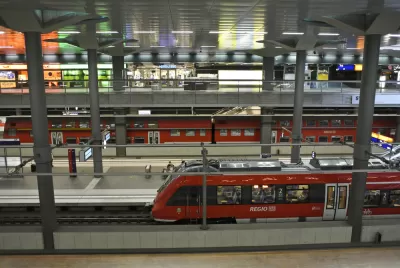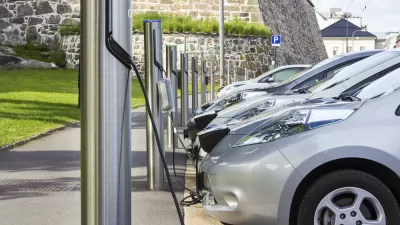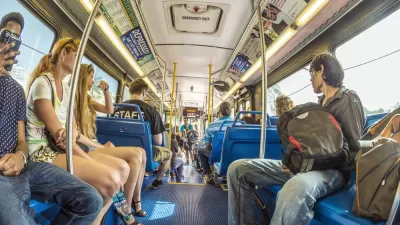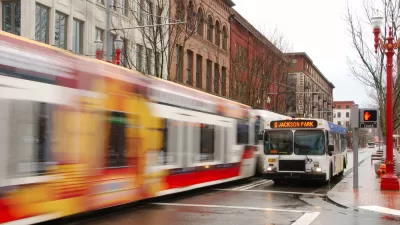With the transportation sector accounting for a third of urban carbon emissions, cities around the world are seeking new ways to electrify their transit fleets and reduce fossil fuel consumption.

As Somini Sengupta reports, more and more cities around the world are taking steps to reduce fossil fuel consumption in their transportation sector and electrify public transit.
Berlin is reviving electric tram lines that were ripped out when the Berlin Wall went up. Bogotá is building cable cars that cut through the clouds to connect working-class communities perched on faraway hills. Bergen, a city by the fjords in western Norway, is moving its public ferries away from diesel and onto batteries — a remarkable shift in a petrostate that has for decades enriched itself from the sale of oil and gas and that now wants to be a leader in marine vessels for the electric age.
"Urban transportation is central to the effort to slow climate change. Home to more than half the world’s population, cities account for more than two-thirds of global carbon dioxide emissions," with transportation as the biggest–and fastest-growing–source, accounting for roughly a third of cities' emissions. Chinese bus manufacturers are taking notice, supplying electric fleets to cities including Los Angeles and Santiago, Chile. Supporters say "the change is audible" as near-silent electric buses replace the roar of gas-powered vehicles.
"At the moment, only 16 percent of city buses worldwide are electric. The electric switch will need to accelerate, and cities will have to make mass transit more attractive, so fewer people rely on automobiles." For the growing metropolises of the developing world, electrification is expensive and challenging. "But where cities are succeeding, they’re finding that electrifying public transit can solve more than just climate problems. It can clean the air, reduce traffic jams and, ideally, make getting around town easier for ordinary people, which is why some politicians have staked their reputations on revamping transit."
FULL STORY: Trams, Cable Cars, Electric Ferries: How Cities Are Rethinking Transit

Alabama: Trump Terminates Settlements for Black Communities Harmed By Raw Sewage
Trump deemed the landmark civil rights agreement “illegal DEI and environmental justice policy.”

Planetizen Federal Action Tracker
A weekly monitor of how Trump’s orders and actions are impacting planners and planning in America.

The 120 Year Old Tiny Home Villages That Sheltered San Francisco’s Earthquake Refugees
More than a century ago, San Francisco mobilized to house thousands of residents displaced by the 1906 earthquake. Could their strategy offer a model for the present?

Ken Jennings Launches Transit Web Series
The Jeopardy champ wants you to ride public transit.

BLM To Rescind Public Lands Rule
The change will downgrade conservation, once again putting federal land at risk for mining and other extractive uses.

Indy Neighborhood Group Builds Temporary Multi-Use Path
Community members, aided in part by funding from the city, repurposed a vehicle lane to create a protected bike and pedestrian path for the summer season.
Urban Design for Planners 1: Software Tools
This six-course series explores essential urban design concepts using open source software and equips planners with the tools they need to participate fully in the urban design process.
Planning for Universal Design
Learn the tools for implementing Universal Design in planning regulations.
Clanton & Associates, Inc.
Jessamine County Fiscal Court
Institute for Housing and Urban Development Studies (IHS)
City of Grandview
Harvard GSD Executive Education
Toledo-Lucas County Plan Commissions
Salt Lake City
NYU Wagner Graduate School of Public Service





























